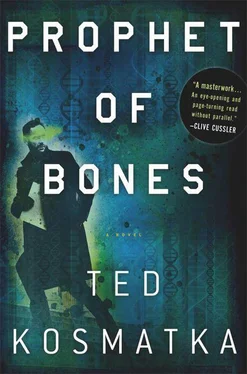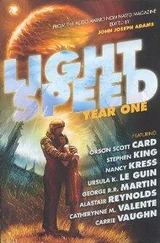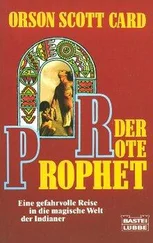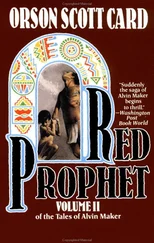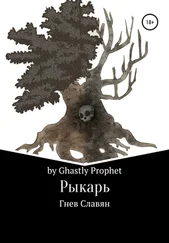There was too much to take in. Most of all, the question. And finally she voiced it.
“Why show us all this?” she asked. “The lab, the report, the babies.”
Paul didn’t answer at first. “To brag,” he said. “For men like him, without somebody to show it to, it makes it matter less.”
“But he has colleagues. He has the politicians to show. So why us?”
Paul shook his head. “I suspect not many people have seen what we’ve seen—and I bet most of them work here. He can only show people he trusts, or people he can control. Which is the same thing. But politicians…” Paul let the word linger. “They wouldn’t want to see this. They’d make a point of it. Even if they saw it, they wouldn’t see it. Plausible deniability. They’d have to not see it.”
“Maybe,” Lilli said, but she looked doubtful. “But there’s got to be more than just ego behind it.”
“Never underestimate ego.”
Lilli’s face went slack. She lay down on the bed, resting her head on the pillow. Paul knew that she’d come to the same conclusion he had regarding another matter. “Regardless of whatever else it might mean,” she said, “it most surely and definitely means one thing in particular.”
Paul nodded but didn’t speak.
“It means he’s never going to let us leave.”
Paul walked the river ice. An endless ribbon of white. He saw tree branches scrawled black against a chalky winter sky. The girl was up ahead somewhere, he knew, though he couldn’t see her. Around the bend. Just out of sight. He followed her footsteps in the snow. Though he shouldn’t, he ran. The ice cracked like gunshots, but that meant it was safe. Then the sound changed, dying out, becoming another kind of sound. A sound like old leather. Paul rounded the bend in the river, the girl’s name on his lips… but when he looked, there was no girl. Only a hole in the ice where she’d fallen through.
Paul opened his eye and turned his head toward the doorway. He nudged Lilli awake, and she startled. He realized she’d been lost in her own dream.
Paul swung his feet to the floor and walked to the door. “Yes?” He spoke through the thick wood.
There came the sound of a key in the lock, and a moment later the door swung open.
It was the guard. The same big one who’d first come for them. He stuck his face into the room. “Breakfast is in ten minutes,” he said. He shut the door behind him. The key jangled in the lock.
“Breakfast?” Lilli said, dumbfounded.
They showered and dressed quickly.
Ten minutes later, the guard was back. He led them along the corridor, then down a flight of stairs that opened to an outdoor veranda. The old man was already there, sitting at a vast table spread with a white tablecloth and bearing several bowls of fruit.
“Coffee?” he asked.
Paul nodded as he sat. “I’ll take some.”
A server materialized out of nowhere and poured coffee for the three of them. Then the server just as quickly disappeared again, sliding behind the hedge that divided the veranda from the rest of the exterior space.
“Lillivati Gajjar,” the old man said. “A beautiful name for a beautiful woman. Bilingual. You attended college with Paul. Trained in primatology. Until recently, employed as a museum researcher.”
“ Still employed,” she said.
“You’ve lived in the U.S., Sri Lanka, and India. Divorced. You tried teaching, but your contract wasn’t renewed.”
“It wasn’t renewed because I wasn’t interested.”
“Really? You weren’t interested, or they weren’t interested?”
She remained silent.
“And now he brings you in on this,” the old man continued. “Some girls have quite the luck. Tell me, what do you think of all this?”
“I suppose you’ll tell me that next.”
The old man laughed. “You’re quite the surprise, I must admit. Sometimes I’m not sure what to think myself, but there is one thing I’m sure of. We do great things here. Things that can’t be done out there, where prying eyes can see and judge.”
“Because the world would shut you down,” Paul said, speaking for the first time.
“Sometimes things go wrong,” Martial said. “True. And there are those who would use that as an excuse to stop our work.”
“What do you intend with us?” Lilli asked.
“Intend with you?” The old man leaned forward, a serious expression on his face. “I intended to kill you, let me be blunt about it. But we don’t get many visitors here, as you may imagine.”
The old man leaned back in his chair. He seemed to consider his breakfast companions. “But Paul here, I have some qualms about. You see, I knew his father. So I am somewhat conflicted. I’m not a bad man—not really. I’m just efficient, and sometimes it looks like the same thing.”
“Sometimes it is the same thing,” Lilli said.
“I’ve a story for you. A hundred years ago in Australia, there was a man of Dutch descent, demented and deranged by all accounts, who took for a wife a young aboriginal woman. They lived out in the bush somewhere, a hermetic existence, rarely in contact with civilization. And during the course of their marriage they had several half-caste daughters—if I can make use of the term commonly used there at the time—who they raised in the bush. And the daughters grew, and it came to pass that the mother died. The father took his own daughter as his wife, in violation of nature, and she, in turn, bore him several children, who were themselves only a quarter aboriginal. Such unnatural pairings have happened from time to time, no doubt, throughout history. But what makes this case so remarkable is that this next generation, too, produced a child who grew to marry that same man, who was in his sixties by this time, and she, too, produced several children in what can only be described as the most intensive form of human line breeding ever documented by science. When this small clan was discovered in the bush, they numbered more than a dozen, some of them lame, some of them touched, and it was the strange brightening of each successive generation that first got the investigator’s attention. He found it odd that the youngest child—a poor mentally handicapped boy—looked nearly white, while each older generation seemed darker and darker.”
“Do you have a point?”
“The point, my dear, is that any privileging of humanity above other forms of life would be a fallacy. It’s a waste of time to assign external causes to internal drives. We fight because it is in us to do so. That’s also, incidentally, why we fuck. One doesn’t need an excuse to do so, but instead must be given a reason not to do so.”
“You make us sound like animals.”
“We are precisely animals. No different from cows or pigs or wolves. I have been looking for what makes us different, and I cannot find it. You are the monkey woman, no?” There was sudden rage in the old man’s face now. An unexplained anger.
“What do—”
“Primatology, this was not your specialty? You graduated with a degree in primatology, a three-point-seven grade point average, attended a graduate program at Washington University. This is you, correct?”
“Yes.”
“What makes us different from apes?”
“There are numerous things.”
“But what, specifically, makes us different?”
“Genetically there are a lot—”
“Ninety-seven percent identical, yes,” the old man snapped. “We’ve all heard that figure, but where are those differences?”
“They’re spread over the entire—”
The old man slammed his hand down on the table. The silverware jumped.
“Humans have twenty-three pairs of chromosomes. Chimps, twenty-four. This is the obvious difference, easily visible on a simple karyotype. A basic difference in chromosome structure.”
Читать дальше
